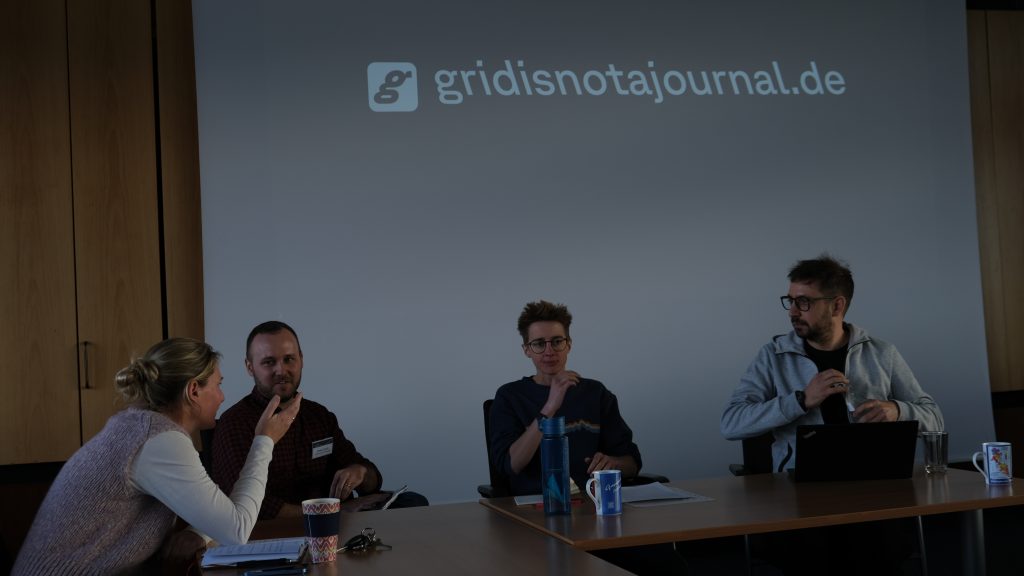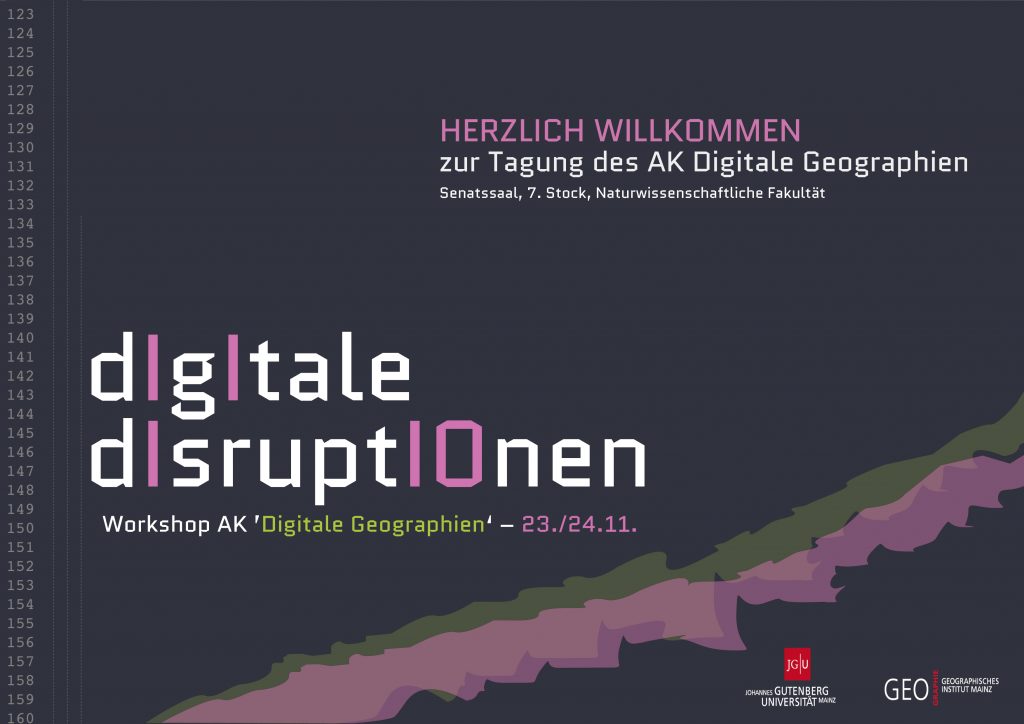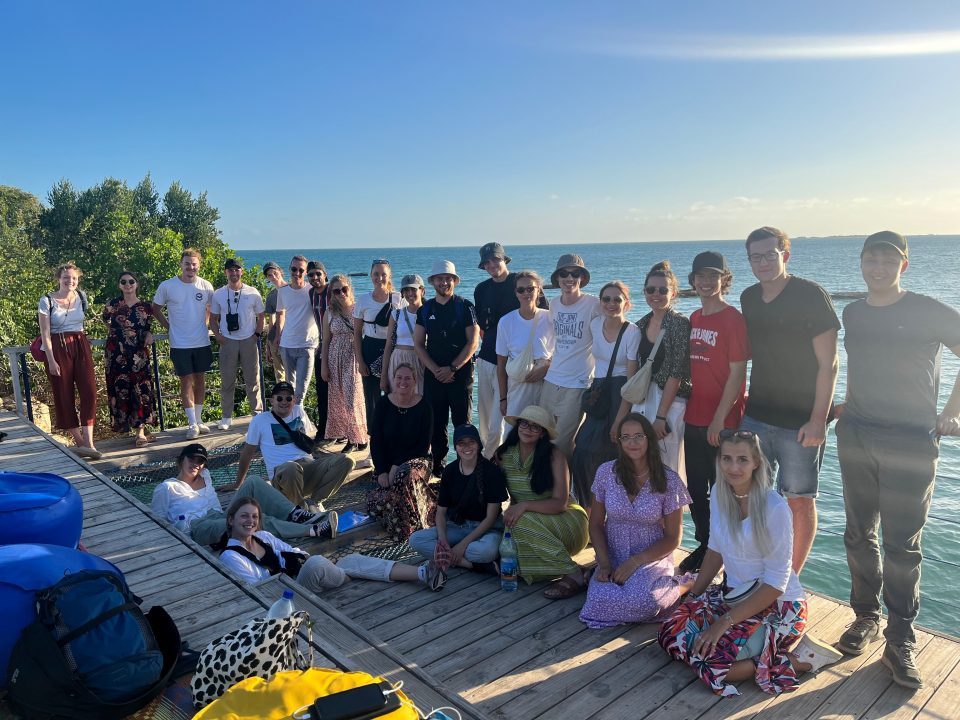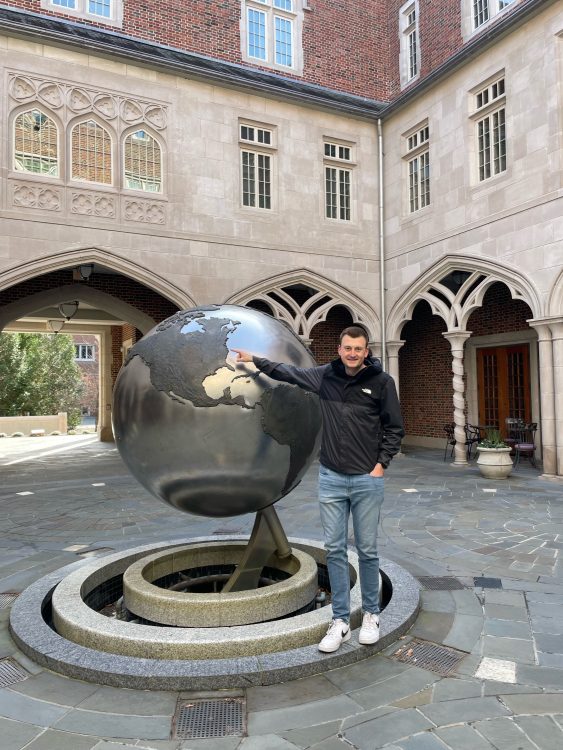Lively debates on “Digital Disruptions” at the annual meeting of the Digitial Geographies-working group in Mainz
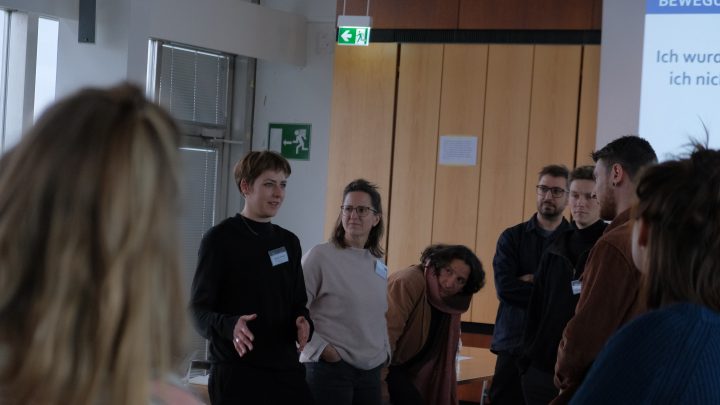
From November 23rd to 24th, 2023, roughly 50 junior and senior researchers in the field of digitization and space gathered for the two-day conference “Digital Disruptions” to exchange their ideas and build networks. In four sessions, participants explored how they position their research expertise within the conference’s topic “Between Glitches, Bugs, Features, and Breakdowns”. Whether addressing the challenges of merging GIS and social scientific theory, failed European cloud services, resistant translations of markets and labor into digital platforms, or activism against digitization – the conference provided a platform for what happens beyond the grand digital narratives of our time. The panel discussion on “Glitch Epistemologies” especially invited participants to reflect on the political implications of resisting, disrupting, or the non-functionality of technologies, and what this tells about our society. The uncontrollability of digital technologies, a topic discussed since the increased spread of generative AI, was practically explored in a hands-on workshop – experiences which were further contextualized in the keynote on “Feminist Geographies of Artificial Intelligence,” followed by a lively discussion in the packed Senate Hall. A networking evening for junior researchers provided opportunities to connect and exchange within the research community.
Organizationally, participants also discussed questions regarding the further organization of the Digital Geographies-working group and the progress in establishing an online platform for digitization research at the intersection of space, technology, and society. Active members invited contributions, meetings, and lively exchange.
Subsequently, the next conference location, Erlangen, was announced, and the role of the contact persons for the working group was passed on (now responsible: Malve Jacobsen, Astrid Matejcek, Finn Dammann, and Hannah Böttcher).
After two and a half days of exploring Digital Disruptions, not only were spatial aspects of digitization research deepened, but common forms of exchange were also further strengthened.
